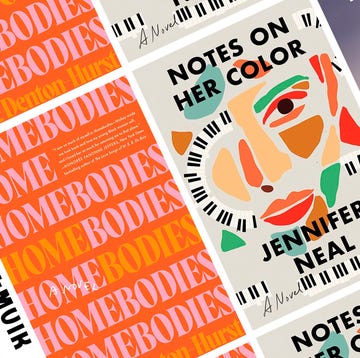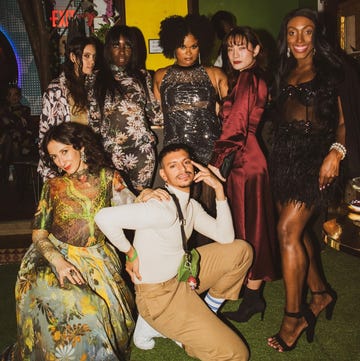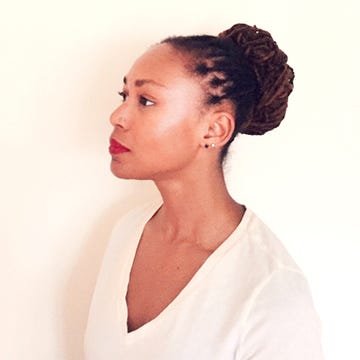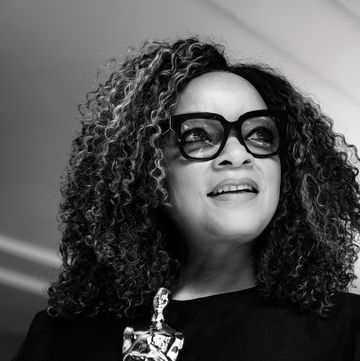Frank Ocean's fans have learned over the years that he's not the type of artist whose moves you can predict. As one of the music world's most adored recluses, he has a long history of sparking intrigue with every album release and appearance.
It's been six years since we've seen him perform live onstage, and six years since he released Blonde, the game-changing, genre-fluid record that had fans racing to download Apple Music in order to get a first listen. Blonde was an event, and before it, so were his records Channel Orange and Nostalgia, Ultra. On Sunday night, Frank Ocean returned to the stage at Coachella after a three-year delay, having canceled one show and postponed another due to the COVID-19 outbreak. Like most of Ocean's work, the performance and public reaction to it can't be explained in a simple tweet or TikTok, or readily broken down for public consumption. Frank Ocean makes you work to understand what he's trying to tell you, at all times.
For one thing, he started over an hour late, presumably because his especially intricate set design took so long to put into place. As a result, festival producers cut off his performance shortly after midnight, though a source close to the situation explained that his set actually ran 20 minutes longer than originally planned. The source also shared that the singer suffered an ankle injury ahead of his anticipated performance and last-minute production changes were due to doctor's orders. There's no denying that it was disappointing, though it felt familiar—fans always want more of him than they can get. But it felt especially devastating to have waited years for a performance that became impossible to see because of California curfew laws. (Fans at home weren't able to experience Ocean's comeback either since YouTube didn't stream his performance as they did other headliners. This was most likely Ocean's own creative decision.)
More From Harper's BAZAAR

Disappointments aside, Ocean has never sounded better. Based on the sonic storytelling he showcased during his time onstage, he's been feeling creatively fulfilled—something that fans were eager to see given the recent challenges he's faced. It was only three years ago that he lost his younger brother, Ryan Breaux, in a tragic car accident, and he had never publicly commented on the death until the night of the festival. After the first few songs of his set, while addressing the crowd for the first time directly that evening, Ocean made sure to honor his brother, sharing that they used to come to Coachella together often and how he would have loved to witness this defining moment in his career. Throughout his performance, it often felt as if Ocean wasn't singing to the crowd, but to Ryan.
Musically, the shortened set provided a rare insight into Ocean's current sonic universe. He opened the night with his Nostalgia, Ultra ear-worm "Novacane" and performed stunning, stripped-back versions of "Self Control," "Godspeed," and even a cover of Aaliyah's "At Your Best (You Are Love)" for his final song. He and his crew of dancers (though hard to see at times because of the unique viewing setup) wore custom Prada for the occasion. At some points he'd forgo the microphone altogether to blast some of his more popular hits like "Nikes" while mouthing the words along with fans. Some criticized the decision as lazy and low effort. Others saw it as the singer choosing to take in the moment and vibe with the crowd of thousands. He did say he missed us, after all.
One of the high points of Ocean's time onstage with a nearly 15 minute DJ interlude where he played remixes of some of his tracks reimagined into a pulsating, high-energy bounce beat. (His Met Gala robot baby also made a fun appearance). The bounce incorporation seemed to go over a lot of people's heads, unfortunately, but longtime fans recognized the significance: Ocean is a native of New Orleans, where the hip-hop style was originated and later on adopted by the likes of Drake and Beyoncé. It's also an inherently Black genre, making it an in-your-face creative decision for the crowd at Coachella.
Frank Ocean's performance showcased how the relationship between an artist and their fans can often become complicated. Not unlike Beyoncé opting not to share visuals for her lauded album Renaissance almost a year into its release, Ocean's Coachella moment asks what an artist owes to the fans who made them. It's been clear from the jump with Ocean that he doesn't create music with the goal of being famous. Celebrity is merely what happened to him when his deeply introspective songs began to transfix the world. Maybe he never asked for or even wanted all of this, but felt obligated to continue to give something to his fans over the years.
Ocean is the rare artist who's rarely seen (unless you're lucky enough to catch him on the rare occasion biking in Soho or brunching at Balthazar) yet remains relevant because of how his art speaks for itself. Should he aim to create a better experience for his fans come weekend two of the festival? Absolutely. Does he need to consider how the world will perceive him after this first performance? No. He's Frank Ocean, and his name and his work has come to symbolize something bigger than himself. What people tend to forget is that he's still human, after all.
Bianca Betancourt is the culture editor at HarpersBAZAAR.com, where she covers all things film, TV, music, and more. When she's not writing, she loves impulsively baking a batch of cookies, re-listening to the same early-2000s pop playlist, and stalking Mariah Carey's Twitter feed.














